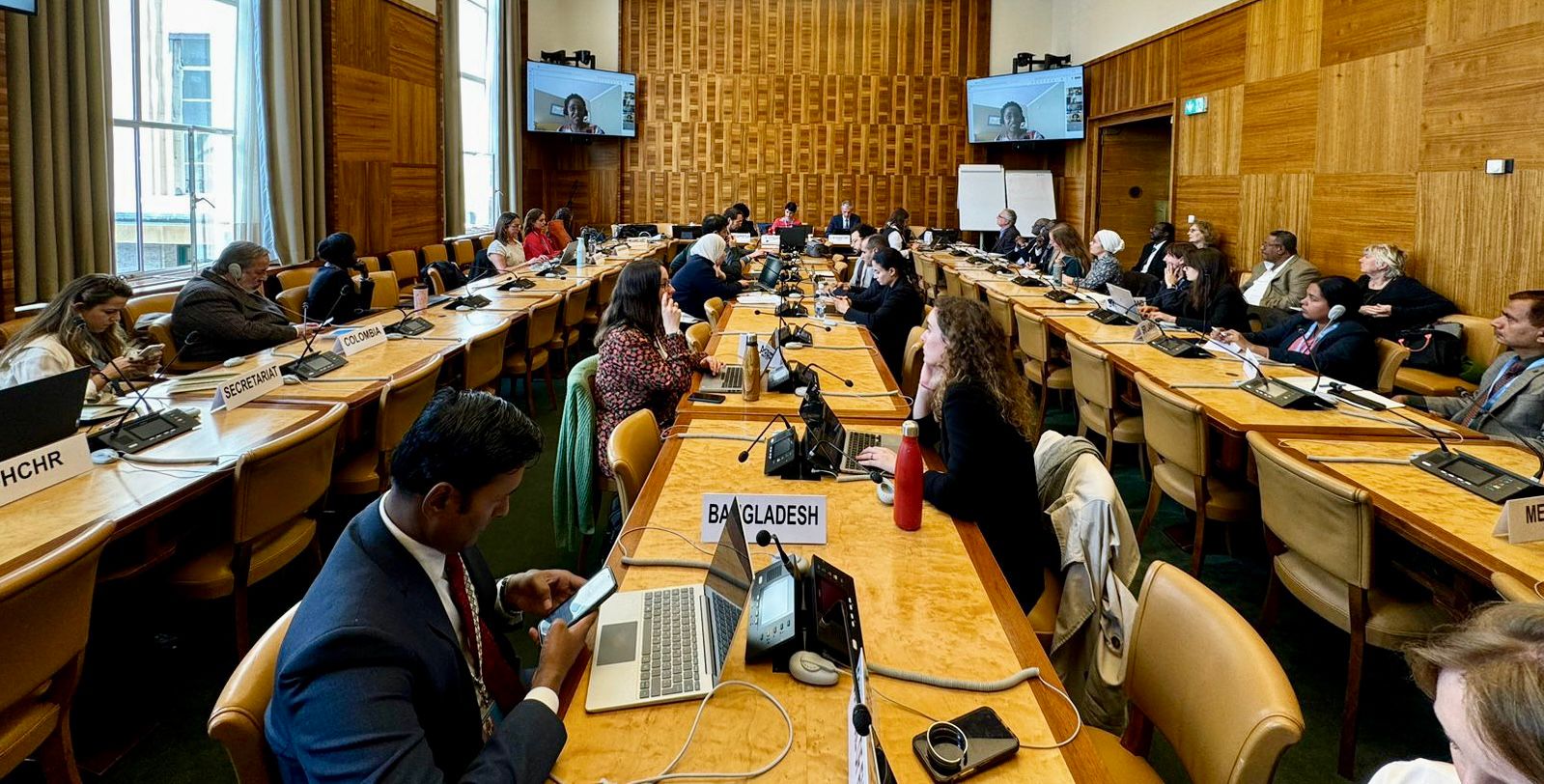“Enforced Disappearances Create a Climate of Terror Among Opponents”: Working Group Presents Report on the Effects of Enforced Disappearances in Electoral Contexts in Nicaragua and the World
Geneva, September 23, 2024. The Working Group on Enforced or Involuntary Disappearances presented its most recent report on the impact that these actions have on electoral processes in the world […]

Geneva, September 23, 2024. The Working Group on Enforced or Involuntary Disappearances presented its most recent report on the impact that these actions have on electoral processes in the world and stressed, that the practice is being used by the “elites in power”, to maintain and consolidate it, mentioning the disappearances in Nicaragua since 2018 and, especially during the 2021 election year.
During the presentation of the thematic report: “Enforced Disappearances and Elections”, the rapporteur in charge of the report, Aua Baldé, who is also the Chair and Rapporteur of the Working Group on Enforced Disappearances, mentioned that at least 60 countries in the world held elections in conditions of democratic deterioration.
Baldé explained that forced disappearances are being used as a tool by some governments to create “a climate of terror among the opponents” of a country and thus consolidate power.
“One of the most prominent trends is that of short-term enforced disappearances, where individuals are made to disappear for short periods of time, without telling their families, (while detainees) are victims of various human rights violations,” said President Baldé.
Since then, thousands of people in the Central American country have been and continue to be subjected to conditions of forced disappearance, as in the case of Indigenous leader and former congressman Brooklyn Rivera, who on September 29 will mark one year since he was kidnapped by the regime’s police without clarifying his whereabouts or health condition.
At the end of May 2021, in an election year, the Ortega-Murillo regime began a hunt against presidential candidates, journalists, human rights defenders, and anyone perceived as an opponent, in order to maintain power.
Juan Sebastián Chamorro was one of those arrested, he disappeared for almost three months and, after being convicted, he was a political prisoner for two years. During his speech at the presentation of the report, Chamorro stressed: “It is extremely important to raise awareness that disappearance means the deprivation of liberty by agents of the State who refuse to reveal the whereabouts of the detainees, as well as their fate.”
Chamorro mentioned that people who are victims of forced disappearances also go through a previous process of police harassment and political violence that can be identified as patterns that serve to prevent future forced disappearances in electoral contexts.
“Electoral violence and forced disappearances are increasingly common to discourage political participation. And what is more important, it is a direct attack on the only form of survival of democracy: respect for the popular vote and the political right to elect and be elected,” Chamorro added.
The report highlights that the practice of forced disappearances does not discriminate against age, gender, or profession; affecting all kinds of people, journalists, members of civil society, and their families.
Race and Equality demands that the Ortega-Murillo regime report the whereabouts of people currently in a situation of forced disappearance. The international community must demand that those responsible be punished for such crimes.
The report Enforced Disappearances and the Elections is available at the following link.

